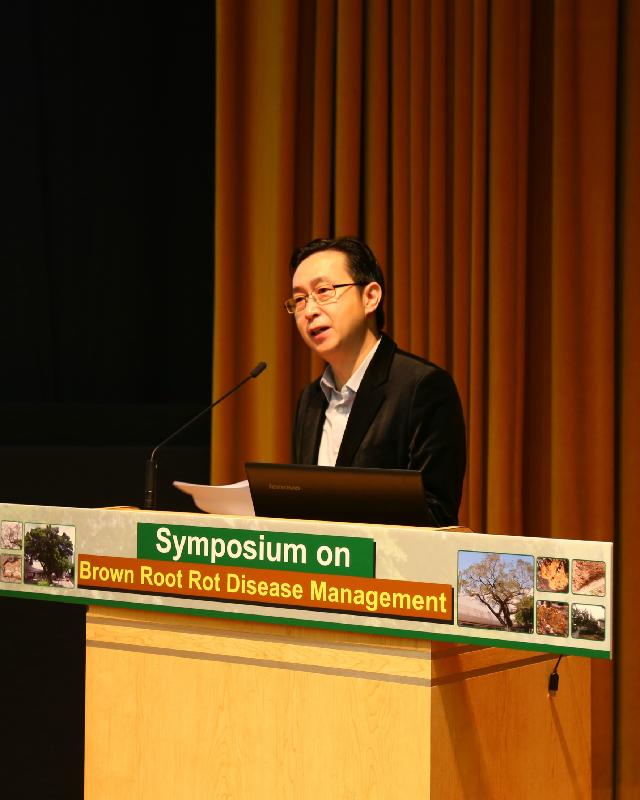Speech by SDEV at Symposium on Brown Root Rot Disease Management (English only) (with photo)
******************************************************************************************
Dr Eric Lee (Convenor of the Symposium and President of the Hong Kong Institute of Horticultural Science), Professor Fung (Associate Vice-President of the Chinese University of Hong Kong, Professor Fung Tung), distinguished guests, ladies and gentlemen,
Good morning. It is my honour to be here today to attend the very first symposium on brown root rot disease management in Hong Kong. I wish to congratulate the School of Life Sciences of the Chinese University of Hong Kong, the Hong Kong Institute of Horticultural Science, and the Horticulture Exchange Foundation for organising this important international symposium. I am impressed by the level of expertise in this Symposium, with speakers from the Mainland, the United States, Australia and Taiwan who have come to share their latest research findings and experience, and I believe all of you here today will greatly benefit from their presentations.
Brown root rot (BRR) is a disease with no known, effective cure yet. The disease can be easily spread through root contact, infected soil, surface and sub-surface water, and even through the air. This can lead to swift deterioration in health of the tree, causing eventual decay and irreversible structural damage to tree roots, posing a serious threat to public safety. Once infected, the tree will remain infected and though at times the tree may look green and full of vigour, it will eventually die if it does not fall first. Equally concerning is the impact on our urban landscape, as we cannot currently re-use the infected site for replanting for a number of years. We note the scale of this problem is increasing in recent years and the situation is becoming alarming. The health of our urban forest assets across our Territory is at risk.
We are currently adopting a multi-pronged approach combining preventive and management tactics to safeguard our urban forest assets, and at the same time minimising the source of BRR disease through proper removal of infected trees, followed by sanitation of the soil medium. In 2012, the "Guidelines on Brown Root Rot Disease" was promulgated. Annual Tree Risk Assessment inspections and routine patrol activities ensure systematic screening of trees under government management for the presence of BRR disease and the removal of infected trees.
In recent years, the Greening, Landscape and Tree Management Section (GLTMS) of the Development Bureau has been collaborating with research institutions to conduct fungal surveys, diagnosis and preventive studies. These research projects and the exchange of views with overseas experts have enhanced our understanding of the disease, which could help build a more holistic, active and successful management approach in the future.
The GLTMS is committed to promoting stewardship of our urban forest to uplift the quality of our living environment through active, quality planting and proper management and maintenance of this urban landscape asset. We also understand that our aspirations for sustainable urban forest management cannot be reliant only on the Government. We need to promulgate and promote knowledge-building and sharing among the public and private sectors and pull them together. To positively build capacity and raise overall professional knowledge and standards in the industry will be key towards better management of BRR disease.
On this ending note, I invite all of you to actively engage in learning more about this disease, so as to protect our urban forest assets and ensure public safety.
Thank you.
Ends/Saturday, March 18, 2017
Issued at HKT 10:10
Issued at HKT 10:10
NNNN



